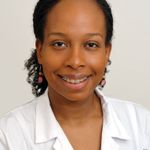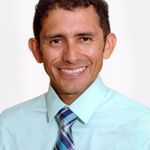Lynne Stevens Memorial Program
About Us
Lynne Stevens was the Director of the Responding to Violence Against Women Program, and an Assistant Professor at the Boston University School of Medicine, Department of Family Medicine. Lynne was a clinical social worker who was a tireless advocate as well as clinician and researcher in the field of improving health care’s response to women experiencing violence. She specialized in evaluation of the quality of care offered in medical settings to women impacted by partner and sexual violence and died in 2009 at the age of 63. Working with such groups as the International Planned Parenthood Federation/Western Hemisphere and the United Nations Population Fund (UNFPA), she developed and implemented programs in many countries, including Nepal, Venezuela, Sri Lanka, Vietnam and Armenia. Educational materials that she developed for program developers and staff have been widely distributed by UNFPA, the CDC, and state anti-violence programs, and been translated into a variety of languages.
On moving to Boston University in 2005, she championed the integration into medical settings of programs responsive to victims of violence. She led initiatives evaluating and strengthening services for victims of violence in a variety of settings, including the Family Medicine Department’s Ambulatory Care Clinic and other Department practices, Manet Community Health Center, and Boston University’s student health services, and dental clinics. Lynne maintained active and substantial community commitments, supporting programs offering free yoga for women with issues of poverty, homeless, domestic violence or substance abuse histories. She also served as a member of the boards of directors of several domestic violence organizations in New York State and in Boston where she became Vice-President of the Board of Casa Myrna Vasquez.
To keep Lynne’s voice and work alive for us, the Family Medicine Dept started a dedicated annual Grand Rounds, inviting a speaker to remind, instruct and inspire us to improve the care we provide to the women who were her life work.. Thanks to a generous donation in Lynne’s memory, our ambitions expanded to include providing the kind of lovely lunch that she always offered her friends and inviting some of the wider community of service providers and coalitions that Lynne participated in across the campus and city.
An additional exciting development was the establishment of a grant program for a research or practice improvement project. Funded in 2011 for to provide annual $5000 grants for 5 years or the life of the fund, the focus is on evaluating, studying and improving care for women who experience partner and sexual violence receiving care in any of the hospitals, student health services and community health centers affiliated with Boston Medical Center or Boston University. This is a University-wide program, so that all faculty, staff, trainees and students of the University and affiliated services are eligible to apply if they receive endorsement by clinicians regarding clinical relevance. Like Lynne, we want to make sure that what we do makes a difference.
Coming of the Light: The 2015 Integrator Top 10 for Policy and Action in Integrative Health and Medicine
The HUFFPOST Healthy Living blog features Katherine Gergen-Barnett, M.D. and Intergrative Medicine in their "Top 10 for Policy and Action in Integrative Health and Medicine".
#3. Katherine Gergen-Barnett, M.D. and Integrative Medicine Group Visits atHealth Affairs

"Meanwhile, at the safety net Boston Medical Center, Katherine Gergen-Barnett, M.D. (pictured), a researcher associated with Paula Gardiner, M.D., MPH's PCORI grant on integrative medicine group visits, broke through a rarely-crossed publication barrier with a paper on integrative medicine group visits in the powerfulHealth Affairs. It is long-past time to put these group-delivered services into the center of integrative education and practice.
To read the full story click here.
Announcing Dr. Gergen Barnett as Vice Chair in Family Medicine
It is with great pleasure that I announce that Katherine Gergen Barnett MD has been named the Department of Family Medicine’s new Vice Chair for Primary Care Innovation and Transformation. In her new role, Dr. Gergen Barnett will oversee Family Medicine practice transformation initiatives in the department. She will lead the department’s quality improvement efforts, bring vigor and innovation skills to the Patient-Centered Medical Home movement, spearhead patient experience initiatives, and provide support and guidance to our ACC practice.
Dr. Gergen Barnett is an Assistant Professor in the Department of Family Medicine where she provides family medicine primary care services in our ACC practice. Originally from Washington, D.C. Katherine attended Yale University School of Medicine and completed the BU Family Medicine Residency Program. During residency Katherine successfully implemented Centering Pregnancy, served as chief resident, received the AAFP Award for Excellence in Graduate Medical Education, and was awarded the Family Medicine Resident Award for Scholarship. Since her appointment in 2009, as Director of Integrative Medicine Clinical Services, Katherine pioneered a model for delivering integrative medicine in the safety net setting, creating a program that provides BMC and CHC patients with an array of integrative medicine services. She served as co-investigator on a grant to study a new model of care called the integrative medicine group visit for patients with chronic pain and depression. She is currently a co-investigator in a three year PCORI grant to study the efficacy of this model in the community. She also has been a co-investigator for other grants studying preventive medicine and yoga. Katherine directs the “Healer’s Art” elective for medical students, serves on the Faculty Practice Foundation’s Professional Development committee, and teaches residents. Dr. Gergen Barnett’s primary interests are health care redesign, social determinants of health, nutrition, stress reduction, women’s health, and group care.
I am thrilled to have Dr. Gergen Barnett join our leadership team starting January 2016. Please join me in congratulating her on the new role.
Dr. Gergen Barnett will join our two other Vice Chairs, Dr. Christopher Manasseh and Dr. Charles Williams, in overseeing key department functions.
- Manasseh, as Vice Chair for Inpatient Services, continues to oversee our Hospitalist Service, Maternal Child Health Service and Nursing Home service;
- Williams will continue in the role as Vice Chair for Network Developmentoverseeing our off-campus practices, credentialing, scheduling, and chair the department compensation committee. Dr. Williams also serves as Boston HealthNet's medical director.
I look forward to working with the Vice Chairs to keep the department on the cutting edge of Family Medicine and improving the health of the people we serve and their communities.
Brian Jack MD
Professor, Department of Family Medicine
Chief, Boston Medical Center
Chair, Boston University School of Medicine
Dowling 5
1 BMC Place
Boston Massachusetts 02118
Office 617-414-4465
Direct Office 617-414-5956
Jack Geiger’s Email to Elmer Freeman Regarding Celebration of the 50th Year of CHCs at Columbia Point – November 2015
Thanks so much for sending me this notice. The audience might like to know that the documentary is freely available on the internet, so they can watch it again at home or show it to friends. All they have to do is Google the four words Out in the Rural, and it will come right up.
I was back in Mound Bayou a few months ago for the Delta Health Center's 50th anniversary, but could not make it to the Columbia Point Ceremony. Either as an attachment to this message or in a separate email, I will try to send you a fairly current map of the current 9000 plus CHC sites in the U.S., now serving about 24 million people: what has evolved from those first efforts in Boston and Mississippi.
Russell Holmes, I know, is the son of Preston Holmes (retired postmaster in Mound Bayou) and Pauline Holmes, who worked as the Delta health center nutritionist for many years. They were among my oldest friends there.
The panel may not be fully aware that, while the health center is located in Mound Bayou (pop. around 2,000), the original target area was the 14,000 in North Bolivar County; it now has six satellites serving four other counties in the Delta, and the whole enterprise has for decades been owned, managed and operated by the North Bolivar County Health Council, the community organization that the brilliant John W. Hatch organized after recruiting himself from the Boston Housing Authority to be the health center's community organizer in Mississippi.
For what my two cent opinions are worth, I think the do-it-yourself model that we developed then… food, environmental interventions, social supports, housing repair, the farm co-op, etc., which we did because no one else was going to. They were essential to health … but not likely to be widely repeated by CHCs now; the model instead has to be intensive collaborative efforts between CHCs and local, state, and federal agencies and NGOs in those areas.
Looking back, finally, I have just turned 90, but am still kicking, I think the most important thing we did was establishing an office of education at the health center, recruiting high school students for work-study programs, and finding pathways to college and professional schools both for them and others. John Hatch and I have lost count, but there are more than 100 African American Bolivar County residents now in the health professional in Mississippi and elsewhere in the South, at every level from physicians, dentists, nurse practitioners, social workers, pharmacists and technicians.
A prime example, of course, is L.C. Dorsey, whom they will see in the film, who had a 9th grade education when she dropped out to work for Fannie Lou Hamer and SNCC, joined the health center as a trainer of nurse aides, did her GED in a program we had at the health center, was admitted (skipping college) to the graduate school of social work at SUNY Stonybrook, graduated with honors, went on to earn a Ph.D. in social work at Howard and
a certificate in health care management at Johns Hopkins, and then was chosen by the health council as CEO of the health center and ran it for ten years, starting in 1988,
Sorry to ramble on for so long!
All my best,
Jack Geiger
Transgender at BU
Ray a rrived on the BU campus two years ago as a freshman from Texas who identified as female and lesbian. A sociology class that October changed everything.
rrived on the BU campus two years ago as a freshman from Texas who identified as female and lesbian. A sociology class that October changed everything.
“Some theorist had talked about how everything we think about in society is a social construct,” Ray (a pseudonym) says. “We were talking about that in direct relation to gender, and there was a moment when I felt, in my brain, like something fell apart. I could feel the fabric of my reality crumbling. It was scariest thing I’d ever felt. I was like, ‘Maybe I’m not a female.’ That thought had never crossed my mind before. It was really shocking to me as an 18-year-old. What am I supposed to do with this information?”
Ray (CAS’17) came to BU in part because it promised a more welcoming environment than that in Texas. “I had never really thought about identifying as transgender while I was growing up or at school, but I think that may have been due to lack of exposure and lack of a comfortable space to explore,” Ray says. “When I came to BU, a lot of things changed for me, perspective-wise.”
So Ray spent much of freshman year grappling with gender identity in “crisis mode,” and on-campus counseling didn’t provide an answer. “People can point you to resources,” Ray says, “but it’s your personal identification that only you can figure out internally.”
Click here to read more.
Education: Training for Integrated Multidisciplinary Care
By Ramon Cancino, MD, MSc
As a medical student rotating through outpatient clinics and hospitals in Ohio in 2008, I felt underwhelmed by the initial experience. In both settings, I witnessed employees working incredibly hard with little interdepartmental communication—even when taking care of the same patients. Sure, there were inpatient “teams,” but these were made up of individuals from similar disciplines. In the ambulatory setting, the patient-centered medical home movement was gaining momentum, but providers and front desk staff members remained separated and, sometimes, at odds. I witnessed a healthcare system struggling to communicate with itself. Physical and virtual walls separated departments from each other, making it impossible, for example, for a front desk staff member to communicate with a nurse about an insurance issue or for a primary care physician to find evidence of the behavioral health treatment his or her patients received within the same institution.
Sensing my frustration, a mentor introduce d me to the Institute for Healthcare Improvement (IHI) Open School, a multidisciplinary online, educational community, which delivers content about quality improvement and teamwork in order to advance healthcare improvement and patient safety competencies. Shortly after being exposed to improvement principles as a fourth-year medical student, I returned to medical school to find a group of like-minded people. This group included hospital and medical faculty and staff, as well as other students. Together, we started one of the first hospital-based chapters of the Open School and educated hospital staff about the power of checklists, medication reconciliation, and Plan-Do-Study-Act cycles. Following medical school, my career path included a family medicine residency, an academic medicine fellowship, and a master’s degree in health services research. Along the way, I helped start chapters in Florida and Minnesota, because, like the hospital at which I trained, there were employees and students who wanted to improve but needed a starting point. For them, as for me, the Open School became that starting point.
d me to the Institute for Healthcare Improvement (IHI) Open School, a multidisciplinary online, educational community, which delivers content about quality improvement and teamwork in order to advance healthcare improvement and patient safety competencies. Shortly after being exposed to improvement principles as a fourth-year medical student, I returned to medical school to find a group of like-minded people. This group included hospital and medical faculty and staff, as well as other students. Together, we started one of the first hospital-based chapters of the Open School and educated hospital staff about the power of checklists, medication reconciliation, and Plan-Do-Study-Act cycles. Following medical school, my career path included a family medicine residency, an academic medicine fellowship, and a master’s degree in health services research. Along the way, I helped start chapters in Florida and Minnesota, because, like the hospital at which I trained, there were employees and students who wanted to improve but needed a starting point. For them, as for me, the Open School became that starting point.
Today, I am the chief medical officer and chairman of the quality improvement (QI) committee of a community health center that serves a diverse inner-city population in Massachusetts. The principles I learned at the Open School are proving more valuable than ever. In fact, I have used these experiences to develop a curriculum that enhances our staff through multidisciplinary education. Through these efforts, we hope to improve the quality of care we provide and to prepare staff for the evolution of healthcare in the United States.
Approaching healthcare as a system of processes rather than a series of individual events was the first step in helping staff members understand their importance to high-quality care. At our first QI committee meeting, I told staff, “The registration process can affect diabetes.” That dramatic statement, when one considers a systems focus, is not far from the truth. Our QI committee receives a standardized monthly curriculum, which begins in January with lectures entitled “What Is Quality?” and “What Is a Metric?” and ends with QI team presentations in November and December. During the year, members create process maps, review their departments’ metrics, and split up into QI teams. They shadow departments that are not their own, review each other’s metrics, and learn how metrics relate to health outcomes and reimbursement. At the year-end presentations, team members describe the QI projects they developed, implemented, and analyzed over the course of the year. The health center’s QI committee is now made up of stakeholders representing every department in the health center, from patient scheduling to behavioral health.
Focusing on teamwork and allowing difficult conversations to occur can help overcome the challenges of QI culture implementation. Large health centers are not the only places where silos develop between departments. “This was not nursing’s fault,” “It was my day off,” and “This was not a medical patient” represent statements I frequently heard early in the development of the QI program at my health center. Encouraging the use of teamwork skills away from QI committee meetings is integral to taking advantage of the physical closeness of departments and building trust away from meetings.
Another method of developing QI culture is to allow difficult conversations to occur among committee members. These conversations must be about quality issues, data, and the best improvement methods. It can be uncomfortable and difficult to have such conversations in a public forum, because staff members can become defensive—they want to protect their own departments or reputations. It is my role to ensure these conversations are focused and goal-driven. It is not my role to end these conversations prematurely. The immediate result of these conversations is the development of a shared action plan. The ultimate result, though, is the development of something deeper: a shared systems-level perspective and the ability to think critically as a group about data and problem-solving methods. Although the results are not felt by the end of the first meeting, I have seen much more honest and open data-driven discussions occur as a result.
True Integration
Multidisciplinary education can result in true integration. The current emphasis on population-based quality metrics increases the need to integrate health services because reimbursement and outcomes can be influenced by more than just the occurrence of a provider-patient visit. To be sure, process metrics can be improved by ancillary staff education, and open communication between different departments can improve outcome metrics in patients with comorbid conditions (for example, patients with both diabetes and depression). Multidisciplinary QI committee meetings allow barriers to high-quality care to be addressed at all levels and enable us to officially empower staff to address quality issues. QI committee meetings attempt to take the strengths of a well-run organizational culture and dispense with the communication barriers that tend to create silos.
Much has been written about barriers to creating and sustaining a successful culture of teamwork and QI, and I will take a brief moment to address two large barriers: time and money. At our health center, staff often learn QI methods during lunch and do QI projects in the course of their daily work. We do not have full-time QI staff. The reason for this is that we, like many health centers, have not traditionally reserved funds to invest in robust QI activities. Therefore, QI committee activities become miniscule components of an employee’s full-time position, and, without the right motivation, sustaining momentum can be difficult. Under traditional fee-for-service payment methodologies, those priorities can often be justified. Yet the increasing trend toward capitated and quality-based payments has increased both the urgency of developing and sustaining QI programming and the ability to pay employees appropriately for devoting time to this activity.
Foremost, we are doing all of this so that our patients will be healthier. Healthcare is changing in the United States, and the question of whether a health center has successful relationships with its patients is now determined both at the individual and the population level. Using QI committee meetings to promote data-driven discussion among health center staff and multidisciplinary team-based improvement has allowed the health center to change its perspective on health as well—from individuals to populations, from silos to communication, and from individual experience to systems and processes. The room I sat in as a medical student learning about quality from Dr. Don Berwick at the first IHI Open School Congress is a 20-minute drive from my health center. Today, that room feels a lifetime away, but the tools I acquired that day are needed more than ever before. Our health center has greatly improved its childhood immunization processes, triage protocols, behavioral health integration, integrated team meetings, and blood pressure control. Those tools will benefit a whole population of patients who may not understand the work it takes to deliver high-quality multidisciplinary care seamlessly. ❙
Ramon Cancino is chief medical officer and chairman of the quality improvement committee at the Mattapan (Massachusetts) Community Health Center. He is also an assistant professor at the Boston University School of Medicine and staff physician at Boston Medical Center. He may be contacted at ramon.cancino@gmail.com.
Healthy Babies are Worth the Wait
Congratulations to Karla Damus on the publication of her book entitled Healthy Babies are Worth the Wait that describes her program in Kentucky to reduce preterm birth rates over 60 months, and provides evidence for an effective intervention that can be applied in other communities.
From the Back Cover
Healthy Babies are Worth the Wait® provides readers with an overview of the problem of preterm birth in the US and describes in detail the design, implementation, evaluation, and outcomes of the Healthy Babies are Worth the Wait® initiative conducted in Kentucky between 2007 – 2009. The initiative sought to determine if the rising rate of preterm birth could be reversed by a program of bundling evidence-based interventions and developing partnerships among key stakeholders. It provided an innovative model that involved clinical, public health, and community advocacy collaborations to address community-specific challenges impacting preterm birth. The results showed that Healthy Babies are Worth the Wait® achieved a statistically significant reduction in preterm birth rates over 60 months, not only in the intervention sites but also in the comparison sites and the remainder of Kentucky and provides evidence for an effective intervention that can be applied in other communities.
In Healthy Babies are Worth the Wait®, readers will learn of a unique research approach employing a mixed ecologic design that compared outcomes between intervention sites and comparison sites based on state vital records to evaluate outcomes. The potential for synergistic improvements in patient care coordination through the establishment of collaborative relationships between clinical and public health professionals is also presented.
Finally, working with the community to identify effective consumer messages and educational materials is discussed, as well as challenges to implementation and key lessons learned. Healthy Babies are Worth the Wait® is an essential resource for perinatal medical and public health professionals, administrators and organizations interested in an innovative approach to improve perinatal outcomes by reducing preterm births, and for communities affected by high rates of preterm births that are motivated and organized to generate change.
Public- Private Partnership Improves Health Care in Lesotho
“Clinical services and patient outcomes improved at a hospital network in Lesotho after its operations were shifted from the government to a public-private partnership, a new study led by Boston University global health researchers reports.
The study in the journal Health Affairsgauged changes that occurred after the government of Lesotho entered into a partnership with a private consortium in 2008 to build and run its national referral hospital and three affiliated community-based clinics. At the time of the shift, the network was struggling with staff shortages, aging infrastructure, and declining service quality.”
To read more, click here!
2nd Year Launch

On July 21st over 50 medical students and over 20 Family Medicine faculty and residents participated in a new program, Second Year Launch!
The event took place on the afternoon before the second year curriculum began. Students participated in hands on workshops run by DFM faculty and residents. Workshops included:
- Vaginal delivery
- Summer Emergencies
- Suturing
- Physician wellness
- Sports Medicine
- Hands on contraception
In the middle of the afternoon, the whole group participated in a 10 minute exercise break on the Talbot Green led by Katherine Gergen-Barnett.
The program ended with a yummy dinner and time to chat.
The event was a huge success – thank you to all the residents and faculty who participated!
Students in our Family Medicine Student Track (FaMeS) and CCHERS (Center for Community Health, Education, Research, and Service) had priority enrollment.
We are planning to expand capacity for next year, and we hope many faculty and residents will participate again!
Fish hook techniques:
https://www.youtube.com/watch?v=ceAhVf67VbQ (this is interesting)
Congratulations to newly appointed faculty!
Congratulations to the following providers who have recently been appointed as faculty at BUSM:
Dana Mars, NP, Assistant Professor
Shayne Poulin, MD, Instructor
Jessica Koval, NP, Instructor

Kristine Slatkavitz, NP, Instructor
Jordana Price, MD, Instructor
Nicole Steinmuller, MD, Instructor
Oscar Cornelio-Flores, MD, Instructor
Boston HealthNet celebrates 20th anniversary; Dr. Brian Jack featured in commemorative video
This year, Boston HealthNet is celebrating its 20th Anniversary. Their commemorative anniversary video features our very own Chair, Dr. Brian Jack, who offers his thoughts on health care in Boston. The video highlights not only past accomplishments, but the powerful impact that the HealthNet collaboration continues to have among all of its partners and the City of Boston.
















